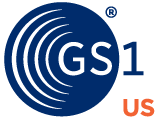GS1 US publishes guideline to help address new FDA traceability rule
Nonprofit information standards organization GS1 US has published a new guideline to help the food industry address the U.S. Food and Drug Administration’s Food Traceability Final Rule.
The new rule requires additional traceability records for certain foods under Section 204 of the Food Safety Modernization Act.
 The document “Application of GS1 System of Standards to Support FSMA 204” was created by industry members of the GS1 US Foodservice and Retail Grocery Working Groups and defines the best practices for product and location identification, structured product descriptions, and the recording of common industry-defined events to support the additional traceability requirements.
The document “Application of GS1 System of Standards to Support FSMA 204” was created by industry members of the GS1 US Foodservice and Retail Grocery Working Groups and defines the best practices for product and location identification, structured product descriptions, and the recording of common industry-defined events to support the additional traceability requirements.
The new rule mandates companies that physically handle certain foods on the FDA Food Traceability List keep additional records to assist in tracebacks during an investigation of a foodborne illness outbreak. The new guidance highlights how voluntary GS1 Standards will help prepare systems and business processes to meet the January 2026 compliance deadline.
New Jersey-headquartered GS1 USC administers the Universal Product Code (U.P.C.) barcode, as well as other information standards and data carriers. The organization, founded in 1973, has 300,000-plus members, and GS1 Standards are the most widely used supply chain standards in the world.
“Through our collaboration with many stakeholders, technology providers and associations, industry now has guidance that will help them extend their investment in GS1 Standards and also support data requirements for this new Final Rule,” Angela Fernandez, GS1 USC vice president of community engagement, said in a news release. “This guideline will help all companies that handle food to maximize supply chain visibility and ultimately advance food safety practices.”
Previously, per the 2002 Public Health Security and Bioterrorism Preparedness and Response Act, “one up/one down” visibility of a product’s movement through the supply chain was required. According to the Final Rule, supply chain partners will now have to keep more detailed records on Critical Tracking Events (CTEs) and Key Data Elements (KDEs) for two years for the specific list of food products. In the event of a recall, data transfer of those records will also be required within 24 hours to expedite recalls.
The GS1 US document provides guidance on how GS1 Standards help bring structure to the data being collected and make interoperability between systems possible.







